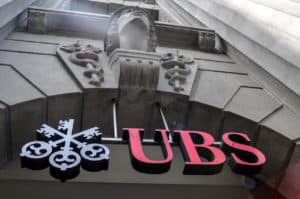 The Bank of England and the US’s Federal Reserve Board, in conjunction with FINMA, have united to present a co-ordinated global resolution to the Archegos Capital Management failure – fining UBS Group a total $387 million.
The Bank of England and the US’s Federal Reserve Board, in conjunction with FINMA, have united to present a co-ordinated global resolution to the Archegos Capital Management failure – fining UBS Group a total $387 million.
The fines follow the acquisition of Credit Suisse Group by UBS last month with UBS having confirmed its intention to merge and operate as a consolidated banking group going forward.
The case is the first time an enforcement investigation by the Bank of England’s Prudential Regulation Authority’s (PRA) has uncovered breaches of four Fundamental Rules.
The £87 million penalty issued by the PRA is a new record for the watchdog – despite it being reduced by 30% from £124.4 million following an agreement between it and Credit Suisse to resolve the matter.
The PRA specifically cited “significant failures in risk management and governance between 1 January 2020 and 31 March 2021, in connection with the Firms’ exposures to Archegos Capital Management”.
In the US, the Federal Reserve Board has announced a simultaneous fine of $268.5 million to UBS, specifying: “Misconduct involved Credit Suisse’s unsafe and unsound counterparty credit risk management practices with its former counterparty, Archegos Capital Management LP”.
Though not imposing a fine, FINMA also found that Credit Suisse “seriously and systematically violated financial market law in the context of its business relationship with the Archegos family office,” with the regulator issuing an order for corrective measures to UBS, following its recent acquisition of the banking group.
In addition to this, FINMA has also opened enforcement proceedings against a former Credit Suisse manager whose identity is so far undisclosed.
The default of Archegos Capital Management, a $10 billion family office founded by renowned New York investor Bill Hwang, occurred in March 2021. The collapse was ultimately sparked by a drop in the share price of US media group Viacom CBS and was one of the most dramatic downfalls in the finance world to date.
Read more: March Madness 2.0: The Archegos fallout
Archegos faced off with its prime brokers, demanding collateral to cover the fund’s exposure on swaps it had purchased on the technology stocks, however as the firm failed to meet the margin calls, a massive $20 billion fire stock sale was prompted as banks rushed to sell off the fund’s positions to make cash for Archegos to pay what was owed.
The severely under-margined swap positions represented a catastrophic risk to Credit Suisse, which following the fallout recorded around $5.5 billion in losses tied to Archegos.
At the same time, Nomura lost nearly $3 billion, and Morgan Stanley’s losses tallied just under $1 billion. Goldman Sachs, Deutsche Bank, Wells Fargo and UBS itself were also linked to the family office but losses were limited.
As well as the financial cost, Credit Suisse also suffered “reputational damages”, said the PRA. Throughout its relationship with the family office, prior to the default, it ignored repeated warnings related to the high risks posed, a report produced by Law firm Paul Weiss, Rifkind and Warton following the fallout concluded.
Read more: Scathing report highlights internal failures relating to Archegos at Credit Suisse
Speaking in an announcement, the PRA has stated that the failures around the event were “symptomatic of an unsound risk culture within the business line that failed to balance considerations of risk against commercial reward appropriately […] The Firms had failed to learn from past similar experiences and had insufficiently addressed concerns previously raised by the PRA.”
“Credit Suisse’s failures to manage risks effectively were extremely serious and created a major threat to the safety and soundness of the firm. The seriousness and widespread nature of those failures has led to today’s fine, which is the largest ever imposed by the PRA,” added Sam Woods, deputy governor for prudential regulation and chief executive of the PRA.